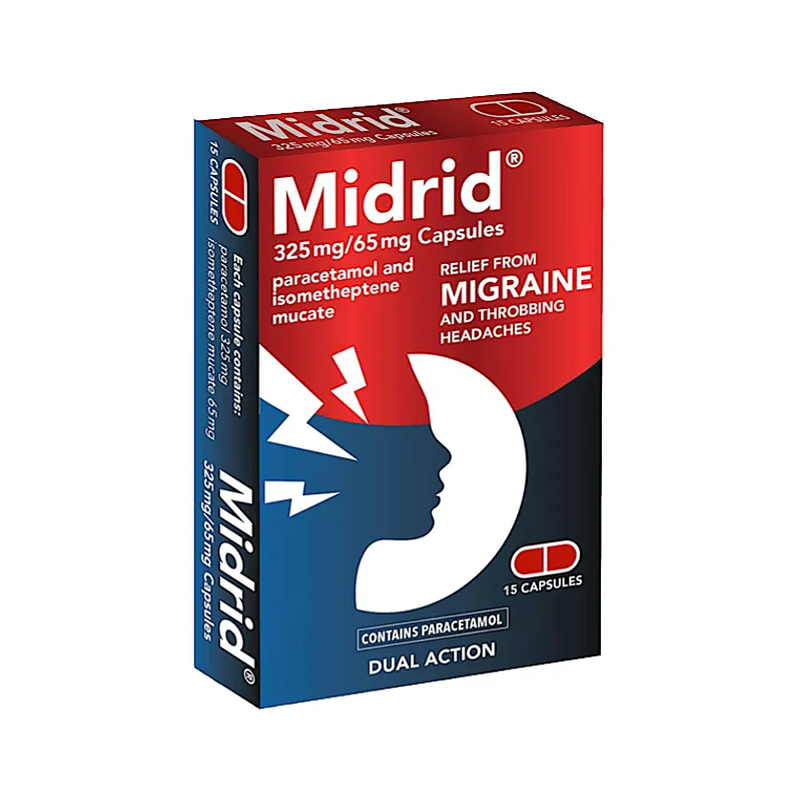1
/
of
1
Pharmacy Only
Midrid 325 mg/65mg Capsules Paracetamol Isometheptene Mucate
Midrid 325 mg/65mg Capsules Paracetamol Isometheptene Mucate
Regular price
£7.49 GBP
Regular price
Sale price
£7.49 GBP
Taxes included.
Shipping calculated at checkout.
Quantity
Couldn't load pickup availability
Midrid Capsules combine paracetamol 325 mg and isometheptene mucate 65 mg to treat migraine and throbbing vascular headaches. Paracetamol eases pain, while isometheptene narrows dilated cranial blood vessels linked to the throbbing phase. Use at the first signs of a migraine.
How to use
-
Swallow two capsules as soon as you sense a migraine starting. If the headache persists after one hour, take one capsule, then repeat one capsule every hour until the migraine settles, with a maximum of five capsules in 12 hours. If you still have a migraine after 12 hours, you may repeat one further course the same way, then seek advice. Do not take more than five capsules in 12 hours. Do not use in children. Avoid alcohol on the same day you take Midrid. Do not take anything else containing paracetamol that day.
Main Ingredients
-
Each capsule contains paracetamol 325 mg and isometheptene mucate 65 mg. Other ingredients include microcrystalline cellulose, talc and colloidal silicon dioxide; the shell contains gelatin, water and colourants E171, E127, E104 and E132. Packs are typically 15 or 30 capsules. Legal category P, supplied under pharmacist supervision.
Side Effects & Cautions
You may notice dizziness, tingling or cold fingers or toes, rash, or drowsiness. Stop and get advice if you develop breathing problems, severe tiredness, easy bruising, or any allergic reaction. Do not use if you have severe high blood pressure, glaucoma, severe heart, liver or kidney disease, porphyria, if you are pregnant, breastfeeding, or in the first few weeks after childbirth. Do not use if you have taken a monoamine oxidase inhibitor in the last 14 days. Use with care and seek advice if you have diabetes, cardiovascular disease, an overactive thyroid, spinal cord injury, alcohol-related liver damage, or an eating disorder. Interactions include warfarin, medicines for high blood pressure, digoxin, quinidine, colestyramine, tricyclic antidepressants, metoclopramide or domperidone, bromocriptine, chloramphenicol, enzyme inducers such as carbamazepine, phenobarbital, phenytoin, primidone or rifampicin, and St John’s wort. If you are using other migraine medicines, ask a pharmacist before combining. Seek urgent help after any overdose, even if you feel well.
Patient Information Leaflet
Share


